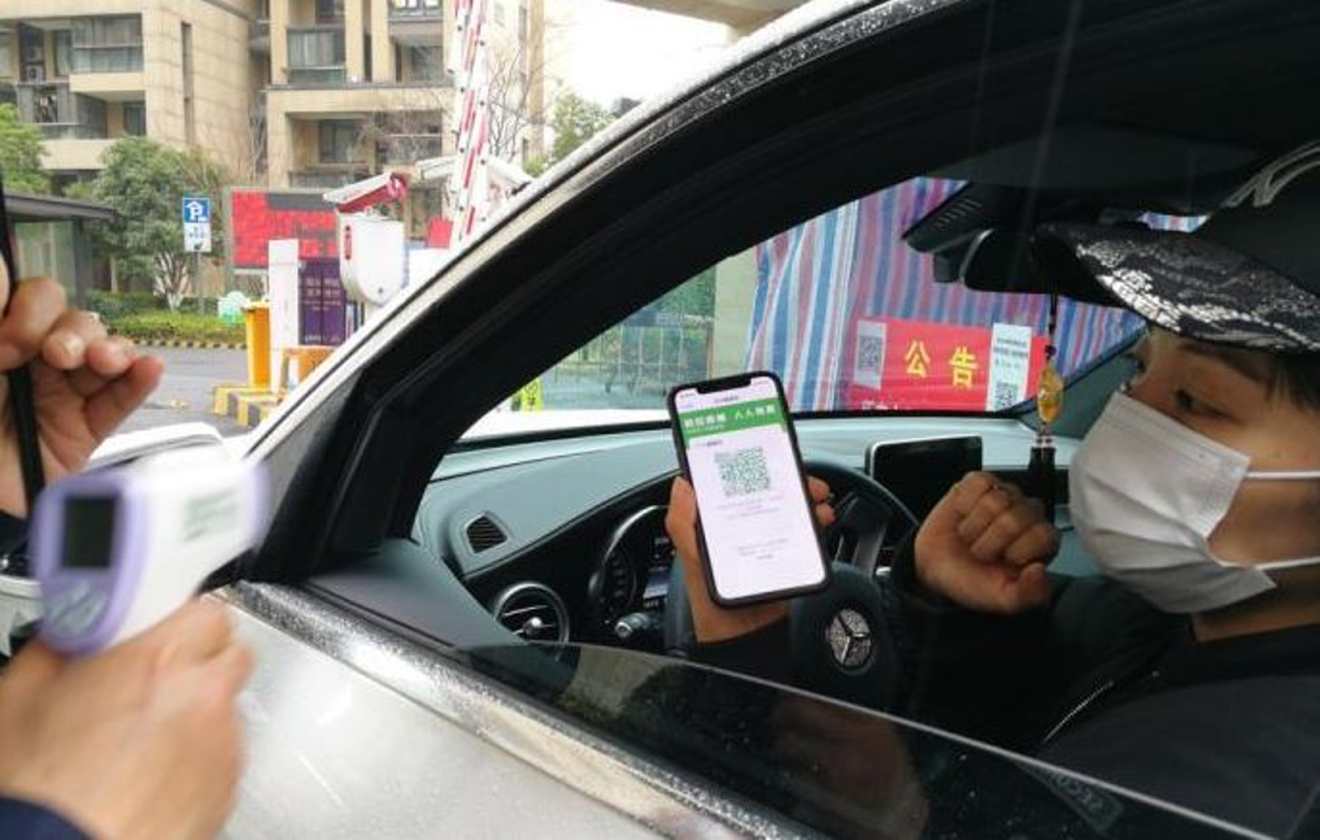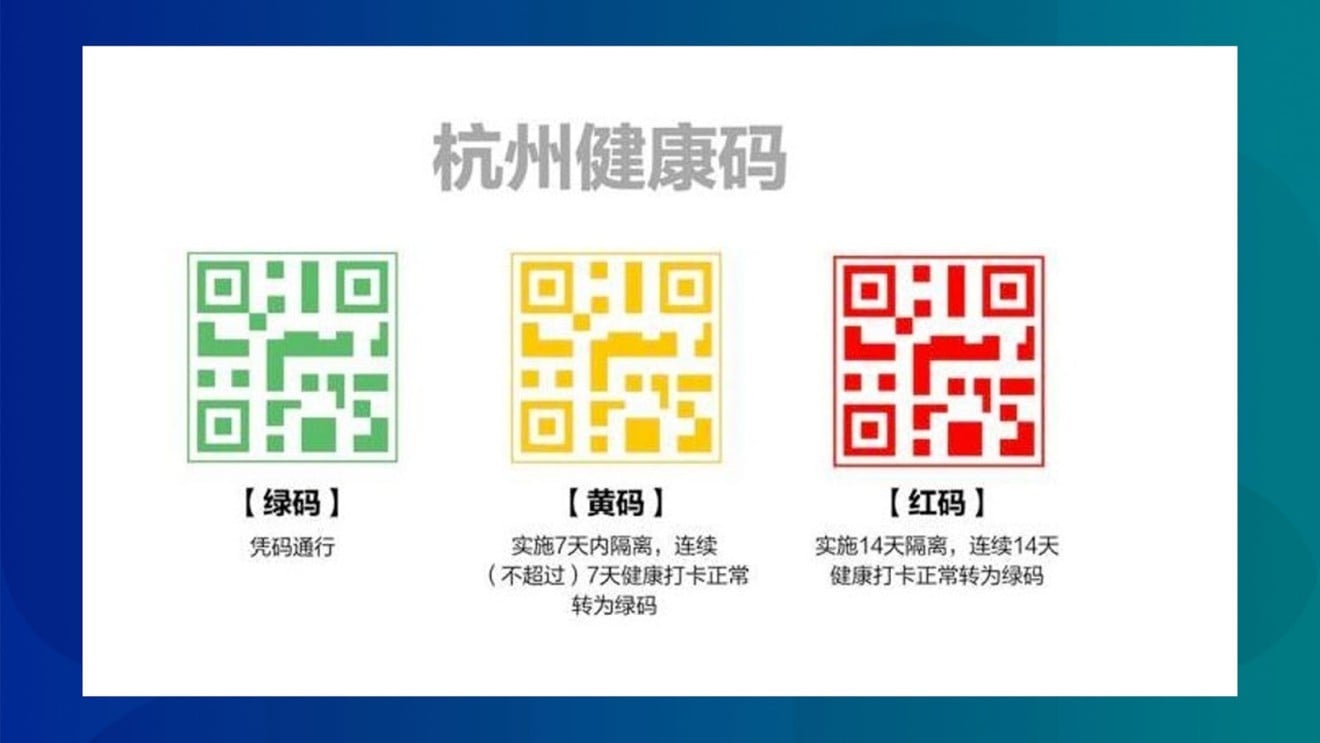A color-coded QR code system to fight the coronavirus allows people to travel freely or forces them to self-quarantine
China is set to soon assign citizens QR codes that will indicate whether they're at risk of contracting the new coronavirus and need to self-quarantine. Millions of people in Hangzhou, the city southwest of Shanghai where this system has already started, have effectively been guinea pigs for the new system that some people say has introduced both solutions and new problems for life during the Covid-19 outbreak.
The coronavirus has upended life in China, and a hodgepodge of policies from different organizations has made it difficult for people to get around cities. The new QR code system is meant to ease this pain point by helping people easily show whether they're at risk or not. But some people, like Hangzhou resident Kaikai Shi, have doubts about how well the system achieves its goal.
"The assessment is inaccurate as far as I can tell," Shi said. "If someone from a severely afflicted area fills in the wrong info, he or she gets a green code. But if someone in Hangzhou, who has never been in touch with people from an afflicted area, fills in that he or she has a sore throat, a red code returns."
But Shi also says his new green health code has made it easier for him to be out and about, showing the uneven impact of a system assessing people through opaque algorithms that few people understand.

This system in Hangzhou was the inspiration for what will soon become a national health code system accessible through Alipay, according to the team behind the widely used mobile payment app at Ant Financial. The national system was created "under the guidance" of China's State Council and will go into effect next week, Alipay said. Alipay didn't provide comments for this story.
(Abacus is a unit of the South China Morning Post, which is owned by Alibaba, an affiliate of Ant Financial.)
The system in Hangzhou assigns residents one of three colored QR codes: Red, yellow or green. Only residents with a green code are allowed to move around the city freely. Those with a yellow code are required to confine themselves at home for a seven-day quarantine. Those with red codes must quarantine for 14 days. Holders of yellow and red codes are required to log in every day during quarantine before their codes can turn green.
This means people have to register for the system and hope they get a green code in order to be able to travel freely and access public facilities.
To sign up for this system, a person can register directly on the Alipay mini program for the Hangzhou government's service portal. Many municipal governments in China have launched government service portals as mini programs on Alipay and WeChat. Logging into the portal lets residents access their code.
To register, a person puts in their name, national identification number, phone number and detailed answers to questions about travel history and health status. From there, the government works with a number of undisclosed big data entities to rate each applicant's status.
Hangzhou has issued a total of 7.25 million health codes so far, according to state media, which include more than 316,000 red codes and close to 200,000 yellow codes. Under the city's rules, that means half a million people were required to quarantine themselves at home.

The government also said a person's health code is determined by three factors: Travel history, duration of time spent in an outbreak-stricken area, and relationships to potential carriers of the virus. The government said that the information provided by big data companies allows its system to track a person's location down to the county level.
To enforce the new health code system, the Hangzhou government now requires apartment complexes, companies, public transit and public facilities to check individuals' health codes before letting them in. The city was previously barring people without a green health code from entering, but it started to relax that rule for long-term residents and those with stable employment.
So far, reception to the health codes has been mixed. While many think that this system is necessary for the city to gradually roll back its citywide lockdown, those whose lives have been adversely affected complain that the system lacks transparency and is potentially ineffective.
Hangzhou resident Su Chumin said that this centralized, data-driven quarantine system is an improvement over the lockdown.
"It used to be that each apartment complex had its own rules and entry permits. In our case, only one person in a family was allowed to leave the complex and go on a grocery run," Su said. "But now it has become much easier since we can freely leave or enter so long as we have a green code."
Su said that she trusts the system because it appears to be intelligent. "After I filled in some basic information, it automatically made out which company I'm working for. I don't know how it did it," she said, adding that it might be because Alipay is linked with Alibaba's DingTalk, the widely used office app that she uses to clock in and out of work.
But not everyone is having a pleasant experience with the system. Ma Ce, a Hangzhou-based lawyer who specializes in internet services, now finds himself struggling to return to the city because he has a red health code for no discernible reason.
Ma complained that the system seems to be driven entirely by an algorithm and lacks effective ways for people to appeal erroneous assessments. Ma said he filed for an appeal on the app and called the city hotline for help but to no avail.
"Even if we can accept an erroneous assessment concluded by this system, there's no follow-up procedure through which we can file a complaint," Ma said. "As such, I just have to idly wait."
He added, "This entirely nontransparent, or perhaps impossible-to-be-transparent, algorithm exacerbated our sense of helplessness in the face of such a major impact on our lives."
Kaikai Shi said he witnessed the fickleness of the system himself. While he was blessed with a green health code, Shi said some of his friends saw their health codes suddenly change color without any stated reason.
"Some of my friends got green codes one day, but the color changed into yellow just as they got ready to go back to Hangzhou," he said.
After Hangzhou rolled out its health code system last week, other places started introducing similar ones. Shanghai and Wuhan, the epicenter of the virus outbreak, have their own systems, and Yunnan province adopted a similar "in-and-out" code system. The new nationwide system comes as companies across China start to get back to work to try to move past the negative impact of the coronavirus.
But even with the national system set to roll out, the problems with the system as it exists in Hangzhou continue. A number of hashtags related to the Hangzhou health codes have been gaining traction online, many of which include negative posts or netizens looking for help from others online.
For more on China tech visit abacusnews.com or subscribe to our newsletter via abacusnews.com/newsletter for the latest China tech news, reviews and product launches.
Copyright (c) 2020. South China Morning Post Publishers Ltd. All rights reserved.







